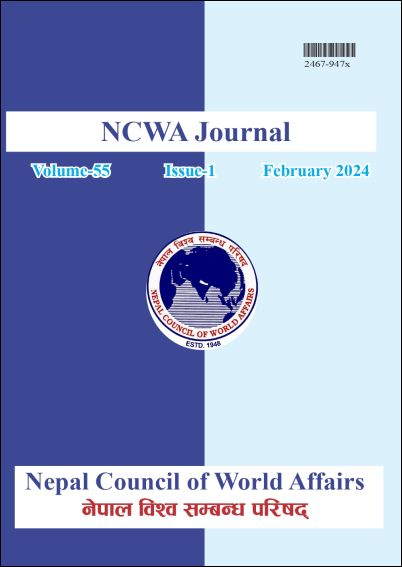Relevance of International Humanitarian Law in International Relations: National and International Contexts
DOI:
https://doi.org/10.3126/ncwaj.v55i01.62982Keywords:
Geneva Conventions, International Relations, United Nations, International Humanitarian Law, Armed Conflict, International Committee of the Red CrossAbstract
International Humanitarian Law (IHL) holds significance within the realm of international relations which encompasses various disciplines such as international law, diplomacy, and interactions among national and international entities. The prevalence of over 100 armed conflicts underscores the imperative for parties involved in conflicts and other influential actors to comprehend IHL. In the face of ongoing armed confrontations worldwide, the continued relevance of IHL in shaping international relations becomes apparent. States must prioritize the promotion of respect for IHL to establish a robust international relations system. This article endeavors to explore the interconnectedness of IHL with international relations and assess its importance. The study will delve into the role and significance of IHL in the context of international relations, with a particular focus on Nepal, where the Ministry of Law and Justice assumes a leading and coordinating role in promoting IHL. The study involves an extensive review of pertinent literature on international humanitarian law and international relations, primarily sourced from online publications.




